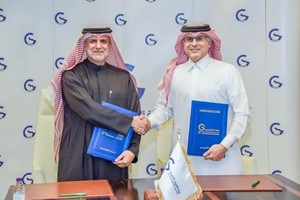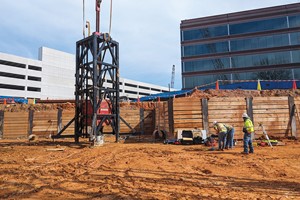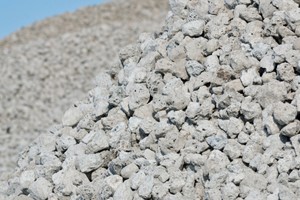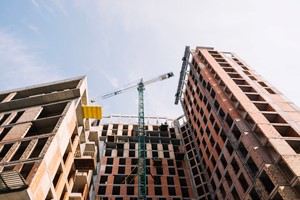Dr. Yousef Bin Mohammed Alhorr, Founding Chairman of GORD, and His Excellency Engineer Nawaf bin Ibrahim Al-Hamad Al-Mana, President of GSO
Businesses operating in the Gulf region’s construction and real estate sectors will soon experience a transformative shift in sustainability standards, following a landmark agreement between the Gulf Organisation for Research & Development (GORD) and the GCC Standardization Organization (GSO). GORD, a subsidiary of Qatari Diar Real Estate Investment Company, has developed the region’s first-ever Sustainable Construction Code, which is now set to be integrated into the broader Gulf Building Code.
The agreement, signed by Dr. Yousef Bin Mohammed Alhorr, Founding Chairman of GORD, and His Excellency Engineer Nawaf bin Ibrahim Al-Hamad Al-Mana, President of GSO, at GSO headquarters in Riyadh, Saudi Arabia, paves the way for a more uniform and enforceable approach to green construction practices. Endorsed by the Ministries of Municipalities and Urban Planning across Gulf States, the Gulf Building Code provides a comprehensive framework for the construction industry, ensuring that sustainability becomes a core business requirement rather than an optional consideration.
For companies in real estate, development, and construction, this represents a critical moment to align with emerging regulations and market demands. Developed at Qatar Science & Technology Park, the Sustainable Construction Code builds on GORD’s Global Sustainability Assessment System (GSAS), the first performance-based green building rating system in MENA. By integrating key sustainability criteria into the regulatory framework, businesses will be required to meet new standards in energy efficiency, material selection, water conservation, and site planning.
Dr. Yousef Alhorr, Founding Chairman of GORD, emphasized the business significance of this achievement: “We take immense pride in GORD’s instrumental contribution to the Gulf Building Code by developing the first unified Sustainable Construction Code for the region. This achievement marks a significant milestone in our commitment to advancing sustainability and promoting a more environmentally conscious future for the Gulf nations. The Code is designed to ensure wider accessibility and adoption, ultimately promoting the creation of sustainable urban landscapes throughout the region. At the same time, it serves as a starting point toward a holistic green building framework in the future, where sustainability becomes deeply integrated into every facet of the regional building and construction industry.”
With sustainability increasingly becoming a regulatory and economic necessity, businesses that proactively integrate these principles stand to benefit from reduced operational costs, enhanced brand reputation, and alignment with government-backed sustainability initiatives. The Sustainable Construction Code introduces a streamlined approach to compliance by reducing GSAS’s 55 criteria down to 22 key performance indicators (KPIs). This simplification makes the framework more accessible to businesses of all sizes, reducing the need for specialized expertise and costly simulations.
His Excellency Engineer Nawaf bin Ibrahim Al-Hamad Al-Mana, President of GSO, highlighted the importance of green buildings in achieving regional sustainability goals: “Green buildings play a crucial role in helping the GCC region achieve its climate goals by significantly reducing energy consumption, carbon emissions and resource use. To this end, the Sustainable Construction Code represents GCC countries’ vision for a greener, more sustainable future. We are certain that this unified framework will pave the way for a region-wide transformation of the construction industry, where sustainability is not just an option, but an integral part of every project.”
The Sustainable Construction Code is structured into six core chapters, addressing critical aspects of sustainable development: Site Planning and Use, Material Selection, Energy Conservation and Efficiency, Water Conservation and Efficiency, Indoor Environmental Quality, and Heritage and Cultural Identity. By incorporating these guidelines, businesses will be able to ensure compliance, optimize resource efficiency, and enhance the long-term value of their projects.
As regulatory frameworks tighten and sustainability becomes a non-negotiable component of business operations, companies that adapt early will gain a competitive edge. By aligning with the Sustainable Construction Code, businesses in the Gulf region can future-proof their investments, contribute to national sustainability goals, and reinforce their market positioning as leaders in responsible development.













